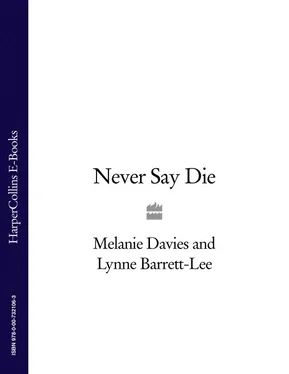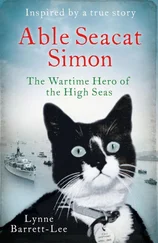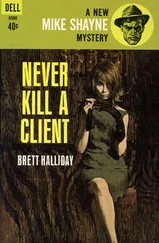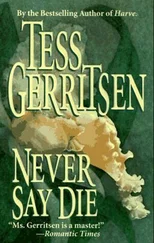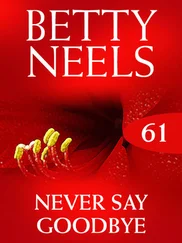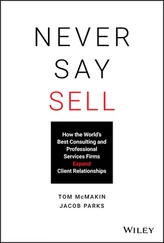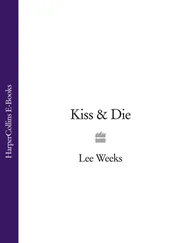‘Well, your dad and I don’t like it.’
‘I know,’ I said again. ‘But I’ll be fine. Stop worrying.’
‘Just be very careful, okay?’
I thought I could hear Aldo pulling up outside. Good, I thought, kissing her cheek. No more nagging. My parents were, and have always been, amazing people: deeply loving, supportive, the very best in the whole world. But like any other teenager, I was deaf to my mother’s fears. Unaware of how often her words would chillingly revisit me, I grabbed my leather jacket from the newel post and helmet from by the door. Then I yelled a goodbye and went to greet Aldo.
Back in the early eighties, the seaside towns of Porthcawl and Port Talbot, where we lived, couldn’t have been more different. Port Talbot was dull. It felt dull, at any rate, to me and my friends. Though it nestled prettily beneath the green and brown bulk of the Emroch and Dinas mountains, Port Talbot’s equally dramatic southern skyline was a towering jungle of concrete and metal; a line of huge blast furnaces, steel gantries and grey buildings that filled the foreground of the view across Swansea Bay. The steelworks dominated the town. From the red dust that settled on every sort of surface, from windowsills to car roofs to optimistically hung washing, to the unspoken assumption that to my mind seemed universal, that being destined for the ‘works’ was the norm. I didn’t want that. I wanted more. I wanted better.
Porthcawl was better. It was different. Exciting. Though it was only a few miles east down the coast, being at Porthcawl always seemed to feel a little like being on holiday. As a child, it had been one of my favourite destinations. It was a good-time place where the sun always shone and there was always ice-cream to eat. A place where I could play on the rocks and swim in the rock pools that were left, warm and magical, by the retreating tide. It had mystery, too, in the stories of shipwrecks, and the brave derring-do of the lifeboat crew. Porthcawl had a heart that was beating, whereas Port Talbot always seemed a little like my poor dad’s chest—one big, sprawling, unhealthy wheeze.
Not that Port Talbot didn’t have a seafront of its own, but ours, Aberavon, though briefly lively during warm summer weekends, could boast little in the way of excitement. Our own funfair, Miami Beach, had always felt just like what it was—a somewhat down-at-heel reminder of a time, now long gone, when people’s expectations of holidays were much simpler. By the time I was in my teens it had been all but pulled down. In the winter months, the beach was a desolate sort of place, which skulked in the shadows of the steelworks.
Porthcawl just didn’t feel like that. Indeed, by this time it was thriving. Its own funfair, Coney Beach, was a big draw for everyone and in the summer months it was filled with throngs of day trippers, and was held in particular regard by the biking fraternity. It suited me, too. At my height, I could almost always get served in the pubs. I felt the familiar stirrings of excited anticipation in my stomach. Volcanoes could do what they liked across the globe. All that was on my young mind that Saturday morning was what a great day I had ahead.
Funny how the brain works. It hadn’t been a particularly memorable sort of day, but set against what was to follow, the rather ordinary details are still pin-sharp in my memory. We drove to the Knight’s Arms, our favourite biker pub in Porthcawl, to find it quiet—it was still early in the season. We chatted, we had some lunch, and the boys went to sit outside, while Juli and I went into the back to play pool.
Juli had been my best friend ever since my change of school had reunited us the previous year. We’d clicked before, when we were younger, and now we clicked again. Even so, we made an odd sort of pair. Where I was a jeans-and-leather-jacketed patchouli-scented rocker, Juli had embraced everything punk. She was wild about Siouxsie & the Banshees and the Sex Pistols, had hair that often looked like a multi-coloured fright wig, and augmented her wardrobe with her granny’s old frocks, which she accessorised with crazy bits of jewellery. In deference to the bike ride, I supposed, she was wearing something quite demure for her tastes—a black boiler suit—but, typically, finished off with pink shoes.
After our game of pool we went outside and sat on the guys’ bikes, while they continued to chat in the sunshine. In such undramatic and, to my older self, seemingly empty ways are whole chunks of teenage life gladly swallowed up. We’d had fun, but decided to head home when it was gone four. If Juli wasn’t home by five-thirty at the latest, she’d be for it. Her parents didn’t even know she was out on a bike. Just with me—a bad influence anyway.
‘You want to swap?’ Juli asked me as we waited for the guys.
‘Dunno,’ I said, surprised. ‘Why, do you?’
She shrugged. ‘I just thought that now I’ve tried John’s Suzuki it might be fun to take a ride on the Honda.’ She smiled at me, and suddenly I realised that she might have another agenda. Perhaps this was more about me than her. More specifically, about me and John. Though he was way out of bounds—he had a very scary girlfriend—Juli knew how much I fancied him. She also knew that despite his going steady, in private he’d intimated that he was interested in me. Was this a manoeuvre to organise things so we could spend a bit of time alone together?
But I felt—and very strongly—that that wasn’t what should happen. I shook my head. ‘No,’ I said. ‘Let’s leave things as they are.’ The most significant ‘no’ of my life, as it turned out, and even now I’m not sure why I’d felt the way I did. Later I’d come to find solace in that. However much I might have wished that what happened hadn’t happened, I was infinitely more grateful it hadn’t happened to my friend.
Aldo always rode fast. He didn’t seem to have an off switch. When we were out on our own he drove reasonably sensibly, but put him in the middle of a big group of bikers—on big bikes—and the testosterone kicked in. He went for it, always. There was never any point in telling him to slow down, let alone pointing out that with one ban for speeding already behind him they’d throw the book at him if he was caught. I tried it once, early on, and soon learned. He would simply growl at me and go faster.
But this wasn’t—hadn’t been—that sort of day. Just the four of us, two bikes, and an uneventful ride home in prospect. Why should it be otherwise? The route back was undemanding enough and the roads were, more often that not, quiet. I knew those roads well; the places where he’d let out the throttle and gun it, the corners and the straights, the scenic stretches through the burrows, the odd glimpse of sea, and the sweep of mountains that loomed to our right. Today’s journey to Porthcawl had been largely uneventful, and I had no reason to suppose the ride home would be any different.
But fate, it seemed, had other plans. Aldo lived with his parents, two brothers and dog on Golden Avenue, a part of the Aberavon beachfront. We were driving towards it now, along Princess Margaret Way, when that absolute no-no, a smaller bike, passed us. Before I’d even thought, irritably, that he probably would do so, Aldo had already given chase. The road seemed to shimmer and dance beneath the wheels. I felt the force of rushing air trying to push me backwards and gripped hard; one hand clenched around the seat strap beneath me, the other, behind me, clutching tightly to the bar. I remember feeling a bolt of proper fear now, as the road curved away into a sharp right-hand bend that took it inland, away from the seafront. This wasn’t just any old bend—it was Jeff’s bend, named after a biker who had died trying to get round it some years before. I felt the bike dip beneath me and automatically leaned with it. How bloody ridiculous, I recall myself thinking. So close to home and he has to get involved in this. Not for the first time, I silently cursed his childish male pride.
Читать дальше
